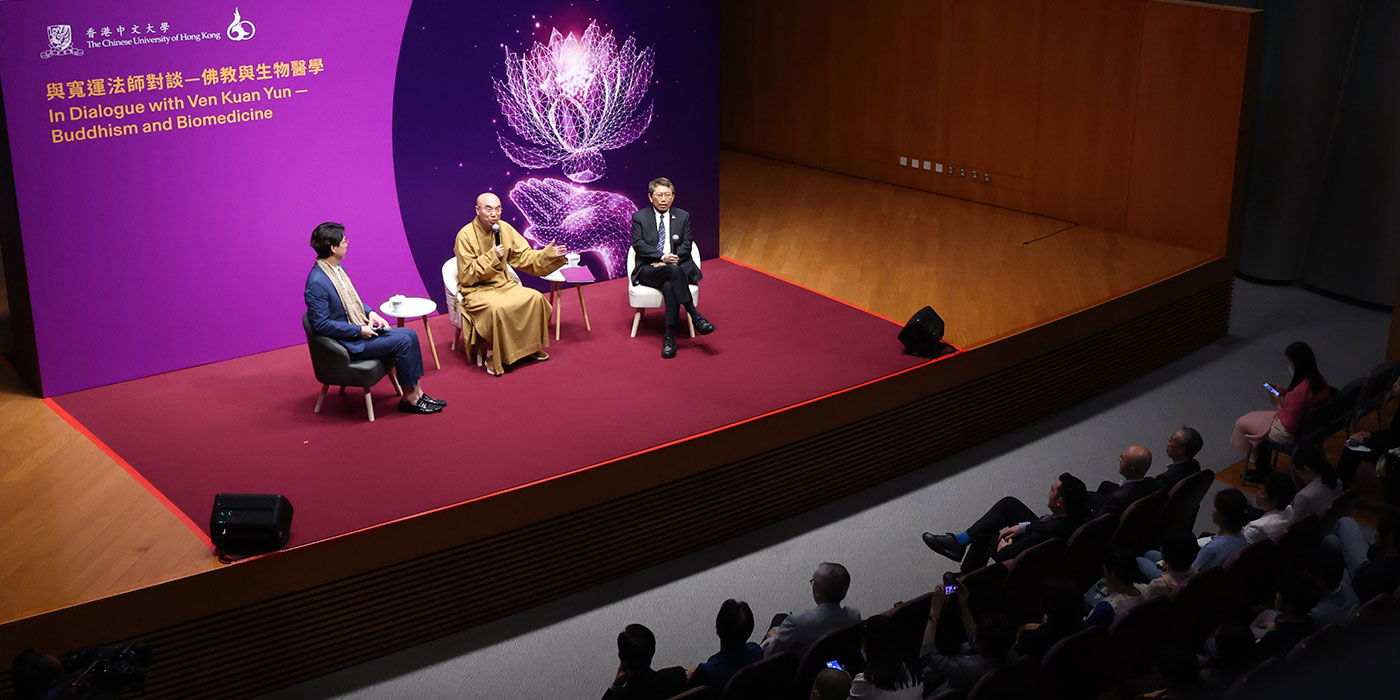The law of the digital jungle
Professor Steven Gallagher’s new book examines the links between the digital and legal worlds
Steven Gallagher gazes around his cluttered office. The professor in CUHK’s Faculty of Law has accumulated a lot of paraphernalia across his 16 years at the University, and stacks of books and papers fill every corner of the room. “I’m a bit of a technophobe. I’m a bit frightened of it,” he says with a chuckle and a glance towards the solitary computer in the room.
Yet it is precisely this wariness that has prompted him to write a one-of-a-kind book on the intersections between his own profession and the latest advances in technology, simply titled Digital Technology and Law, and published earlier this year. As CUHK in Focus discovered, it is a topic that has wide ramifications — not just for the legal profession, but also for society at large.
‘I need to find out’
It was while teaching an elective about art and antiquities law that Professor Gallagher first became fascinated by how technology and law interacted. In 2021, a non-fungible token (NFT) of an artwork by the artist Beeple, titled Everydays: the First 5000 Days, sold at auction for the record price of US$69 million. Both teacher and students were fascinated by this sale of a hitherto unexplored item, and Professor Gallagher’s students looked to him for an explanation. “And I really had to say to them, ‘I don’t know what an NFT is. I need to find out. Let’s try and do that together.’ So we went off to try and find explanations of NFTs, blockchains or whatever else, and that was the start, particularly as a property lawyer, of thinking ‘Are they a form of property? How do we think about them?’”

That first curiosity led the professor to look deeper into the subject of digital technology, upon which he discovered its wide-reaching effects. With an increasing number of legal and financial services being offered through digital means, he believed that it was imperative for him and his peers to get to grips with these new forms of technology, and explore how they could change the world of law. “Very soon, you won’t be able to be a lawyer without having knowledge of technology,” he says. “It doesn’t matter what area of law you’re in, technology will be there.”
Indeed, the two areas of digital technology and law cross paths frequently: issues such as artificial intelligence and intellectual property have complicated the use of technology in law, and Digital Technology and Law is the professor’s attempt at mapping this unfamiliar territory for both technologists and lawyers alike. As he writes in the book: “Technologists need to learn some law”, to be aware of potential liabilities, while “lawyers need to understand the technology, and perhaps even learn some code”.
Picking apart the jargon
Digital Technology and Law explores many terms and concepts found in the world of digital technology, some as simple as outlining the difference between analogue and digital, some as complex as explaining the “consensus mechanisms” on which blockchains operate. Although Professor Gallagher readily admits that many books have already been written on the subject, these are mostly in-depth treatises that heavily rely on jargon and technological know-how, making the subject seem intimidating to laypeople; by contrast, his book seeks to gently induct the reader into the vast world of technology.
The professor is himself conscious of how these new terms can prove disorienting: “The problem with both technology and law is that both technologists and lawyers use their own language, and I think it’s one of the biggest stumbling blocks. When I was trying to find out about the technology, almost every day there was a new term… ‘what is a smart contract?’” To prevent himself from descending into an impenetrable web of terminology, he enlisted a few friends and colleagues, from both inside and outside the legal profession, to help him proofread his work; their insight, he confides, allowed him to create a book that introduces the uninitiated reader to the risks and rewards awaiting them in the worlds of technology and law.

Opportunities and risks
In illustrating the effects of technology, Professor Gallagher patiently picks apart cases where newly created forms of property have come into conflict with the law, and explains how the latter has been clarified and adapted accordingly. In doing so, he suggests that Hong Kong’s current common law system is actually adequate to deal with such cases: “Technology will always be ahead of the law,” he writes in his book, “but often after initial concerns, the law is found to cover most issues, especially in common law jurisdictions.” In his interview, he adds that this has enabled authorities to be relatively “bullish” regarding the trading of digital assets, as the faith in the common law system has ensured that the relevant platforms can still be well-regulated.
With that in mind, the professor believes that a better knowledge of technology can only empower aspiring lawyers: “For my students, I just see this as a wonderful opportunity. Not because things are going to go wrong — although they will — but there will be a lot of litigation involved, and if they understand about it, they can advise their clients on the good things as well.” He pauses, then adds with a grin: “That’s why people don’t like lawyers.”
He may speak in jest, but there is a kernel of truth within the professor’s words on which many of his students would concur: multiple electives revolving around the dual issues of law and technology have sprung up in the Faculty’s curriculum, and are often fully enrolled. “Students in Hong Kong are pragmatic,” he says, “and business has changed in certain sectors. They are pivoting more and more towards technology, because they see this as the future. So I think we will, hopefully, see more interest from our students.”
By Chamois Chui
Photos by Matthew Wu




















